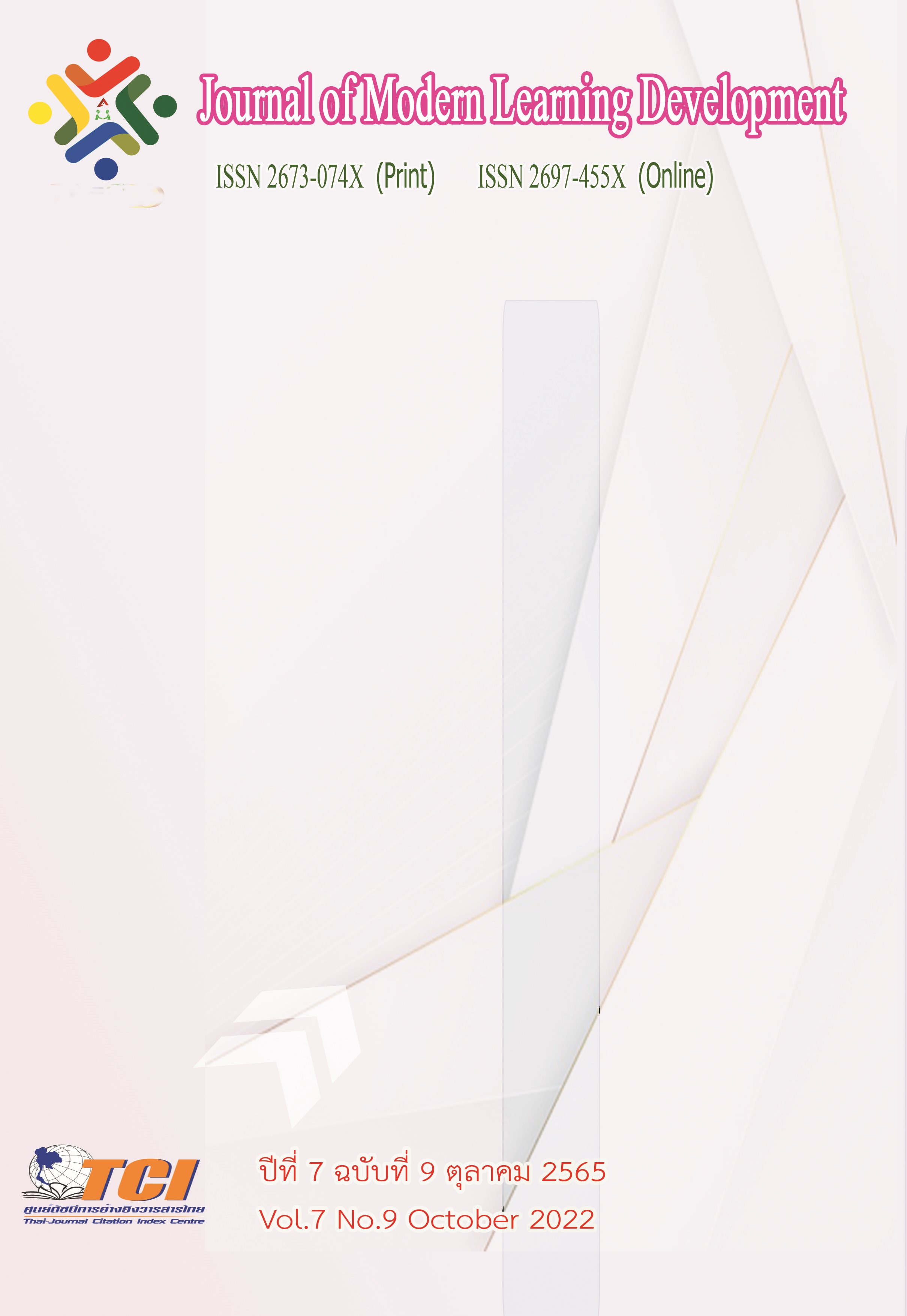Digital Leadership of the Non-Formal and Informal Education School Administrators in District Affiliated with the Lampang Provincial Office of the Non-Formal and Informal Education
Main Article Content
Abstract
The researcher studied the need assessment of digital leadership of the Non-Formal and Informal Education School Administrators in District Affiliated with the Lampang Provincial Office of the Non-Formal and Informal Education. In order to get guidelines for developing digital leadership of school administrators to have appropriate attributes for administration by using digital in schools. This research is aimed to 1) study of the needs assessment and 2) study of the approach to the digital leadership development of the Non-Formal and Informal Education School Administrators in District who is affiliated with the Lampang Provincial Office of the Non-Formal and Informal Education. The 2-step research methods are as follows: 1) Study of the needs assessment for digital leadership of the Non-Formal and Informal Education School District Administrators samples of number 86 persons. The tools of research used as questionnaires, data analysis using content analysis, and an updated Priority Needs Index (PNI) methodology, and 2) studying of approaches to the digital leadership development of Informal Education School District Administrators is affiliated with the Lampang Provincial Office of the Non-Formal and Informal Education by focus group discussion with qualified of 9 persons and data analysis used content analysis methods.
The research found that : 1) The results of the study of the needs assessment for the digital leadership of the Non-Formal and Informal Education School District Administrators found that there had a need sorted in descending order as follows: (1) Digital motivation, (2) Digital communication, (3) Digital knowledge and skills, (4) Digital culture creation (5) Environmental administration and digital networking, and (6) Digital vision and role model and 2) The results of the study of guidelines for the development of digital leadership of the Non-Formal and Informal Education School District Administrators, so overall found that School administrators should be developed by workshops, on-the-job training, and coaching and mentoring for school administrators be able to develop the digital innovative and technology in administration, Promoting for learning administration in the digital age, supervision, monitoring and evaluation.
Article Details
References
วันชัย ราชวงศ์. (2563). ภาวะผู้นำสถานศึกษายุคดิจิทัล School Leadership in the Digital Age. อุบลราชธานี : ครุศาสตรมหาบัณฑิต สาขาวิชาการบริหารการศึกษา มหาวิทยาลัยราชภัฏอุบลราชธานี.
สำนักงานส่งเสริมการศึกษานอกระบบและการศึกษาอัธยาศัย. (2562). นโยบายและจุดเน้นในการขับเคลื่อนการศึกษานอกระบบและการศึกษาตามอัธยาศัย กศน. สู่ กศน. WOW ในยุคดิจิทัล. กรุงเทพมหานคร: สำนักงานปลัดกระทรวงศึกษาธิการ.
สำนักงานส่งเสริมการศึกษานอกระบบและการศึกษาอัธยาศัยลำปาง. (2562). รายงานการประเมินตนเอง (Self Assessment Report : SAR) ประจำปี 2562. ลำปาง : สำนักงานศึกษาธิการจังหวัดลำปาง.
สุวิมล ว่องวานิช. (2562). การวิจัยประเมินความต้องการจำเป็น. กรุงเทพมหานคร: สำนักพิมพ์แห่งจุฬาลงกรณ์มหาวิทยาลัย.
ณัฎฐ์ ชาคำมูล. (2555). รูปแบบการพัฒนาภาวะผู้นำเชิงเปลี่ยนผ่านทางสังคมของผู้บริหารสถานศึกษา สังกัดสำนักงานคณะกรรมการการศึกษาขั้นพื้นฐาน. พิษณุโลก: มหาวิทยาลัยนเรศวร.
Sieber, Kaganer & Zamora, (2013). Digital Leadership : Changing paradigms for changing time. California : United States of America.
R.W. Rebore. (2001). The ethics of educational leadership. United States : Merrill Prentice Hall


